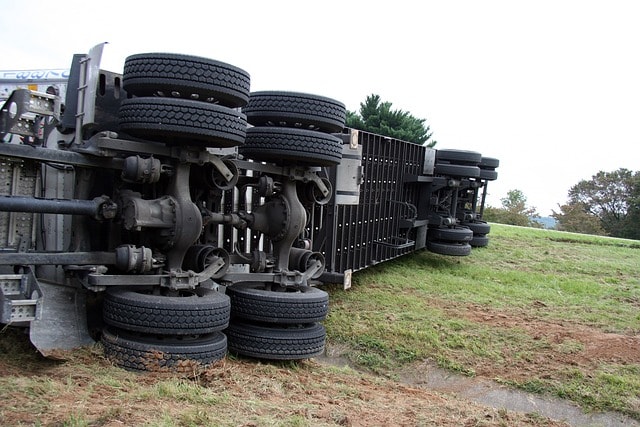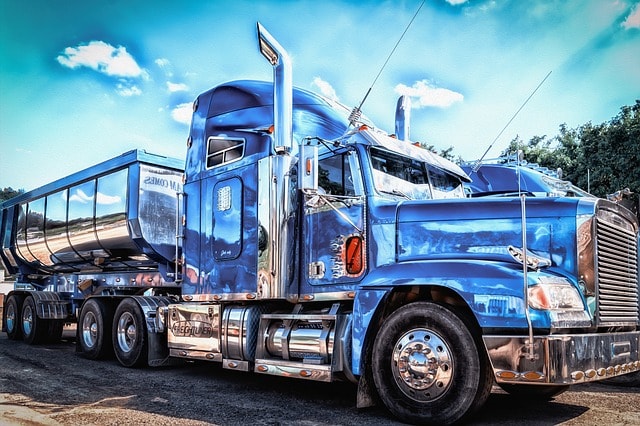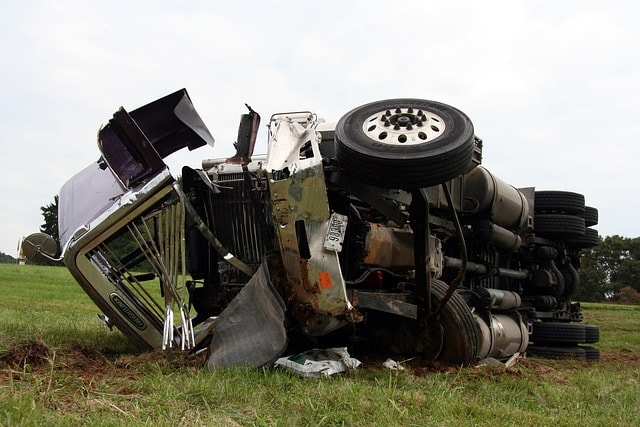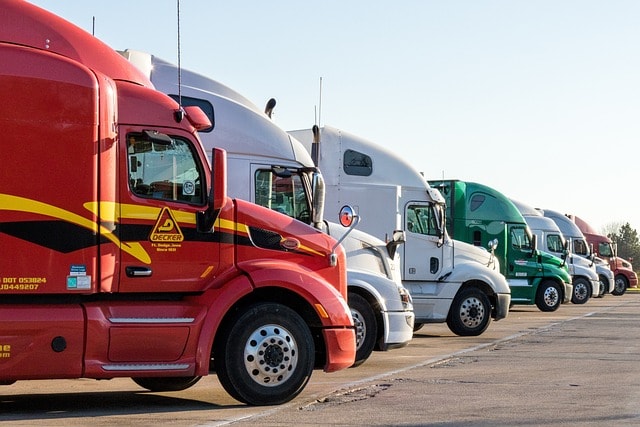Sacramento Truck Accident Lawyer: Your Rights and Legal Options

Introduction
Truck accidents in Sacramento can be devastating, often resulting in severe injuries and significant property damage. This comprehensive guide aims to provide crucial information for victims and their families, explaining legal rights, common causes, and the importance of hiring skilled Sacramento truck accident attorneys with extensive experience handling complex cases and securing fair compensation.
Understanding Truck Accidents in Sacramento
The Scale of the Problem
Sacramento’s busy highways experience high commercial truck traffic, increasing the risk of accidents.
Dr. Sarah Johnson, a traffic safety expert at UC Davis, notes: “The convergence of major highways in Sacramento, combined with heavy commercial traffic, creates a higher-than-average risk for truck-related incidents.”

Types of Trucks Involved in Accidents
- Semi-trucks (18-wheelers)
- Delivery trucks
- Tanker trucks
- Garbage trucks
- Construction vehicles
Common Causes of Truck Accidents
- Driver fatigue
- Distracted driving
- Speeding
- Improper loading
- Poor vehicle maintenance
- Adverse weather conditions
The rising trend in truck crashes highlights the significant risks associated with commercial vehicles, including driver health issues, blind spot negligence, and violations of federal safety regulations.
Legal Framework for Truck Accidents in Sacramento

Federal Regulations
- Hours of Service regulations
- Maintenance requirements
- Licensing and training standards
California State Laws
- Vehicle Code regulations specific to commercial vehicles
- Specific rules for truck routes in Sacramento
Michael Brown, a former California Highway Patrol officer, explains: “Understanding the interplay between federal and state regulations is crucial in determining liability in truck accident cases.”
Unique Aspects of Truck Accidents

Severity of Injuries
Truck accidents often result in more severe injuries due to the size and weight disparity between trucks and passenger vehicles.
Common injuries include:
- Traumatic brain injuries
- Spinal cord injuries
- Severe fractures
- Internal organ damage
Truck accident victims can claim various types of damages, including economic, non-economic, and punitive damages, depending on the severity of their injuries.
Related Term: Medical diagram showing common truck accident injuries
Multiple Liable Parties
Unlike car accidents, truck accidents can involve multiple liable parties:
- Truck driver
- Trucking company
- Vehicle manufacturer
- Cargo loader
- Maintenance provider
Lisa Thompson, a veteran truck accident attorney, advises: “Identifying all potentially liable parties is crucial for ensuring full compensation for victims.”
Related Terms: Potential liable parties in a truck accident
Steps to Take After a Truck Accident

- Ensure safety and call 911
- Seek medical attention
- Document the scene (photos, witness information)
- Report the accident to your insurance company
- Avoid giving statements to other parties
- Contact truck accident lawyers to navigate the legal processes, communicate with insurance companies, and conduct thorough investigations
The Role of a Sacramento Truck Accident Lawyer

Investigating the Accident
Gathering and preserving evidence is crucial, and our experienced truck accident attorneys specialize in handling complex personal injury claims related to trucking accidents.
Analyzing black box data
Reconstructing the accident scene
Dealing with Insurance Companies
- Handling communications
- Negotiating settlements
- Protecting clients from unfair practices
Determining Fault and Liability
Analyzing federal and state law violations
Handling a trucking accident claim involves understanding the complexities of trucking laws and accident reconstruction, which are crucial for determining fault and liability.
Identifying all responsible parties

Compensation in Truck Accident Cases
Types of Damages
- Medical expenses (current and future)
- Lost wages and earning capacity
- Pain and suffering
- Property damage
- Punitive damages (in cases of gross negligence)
Dr. Emily Chen, an economist specializing in personal injury cases, notes: “The long-term economic impact of serious truck accident injuries can be substantial, often requiring expert analysis to quantify accurately.”
The Legal Process for Truck Accident Claims
Filing a Claim
- Statute of limitations considerations
- Gathering necessary documentation
Negotiation and Settlement
- Initial settlement offers
- Mediation processes
Litigation
- Filing a lawsuit
- Discovery phase
- Trial preparation and proceedings
Robert Garcia, a seasoned trial attorney, emphasizes: “While many cases settle out of court, being prepared for trial often leads to better settlement outcomes.”
Recent Developments in Truck Accident Law
Technological Advancements
- Impact of Autonomous Trucking Technology
- Use of advanced driver assistance systems (ADAS)
Legislative Changes
- Recent California Laws Affecting Trucking Safety
- Proposed federal regulations

Trucks are More Dangerous than Cars

Prevention and Safety

Tips for Driving Safely Around Trucks
- Maintain a safe following distance
- Be aware of blind spots
- Avoid sudden movements around trucks
- Use caution when passing
The role of truck drivers in accidents involving commercial vehicles is significant. Their personal conditions and adherence to safety regulations can greatly impact driving performance. Ensuring that truck drivers are well-trained and comply with federal safety regulations is crucial in preventing accidents.
Conclusion

Truck accidents in Sacramento can have life-altering consequences. Understanding your rights, the complexities of these cases, and the importance of experienced legal representation is crucial for victims seeking justice and fair compensation.
Dr. Johnson concludes: “As Sacramento continues to grow, addressing truck safety becomes increasingly important. Both regulatory measures and public awareness play crucial roles in reducing these often-devastating accidents.”
Sacramento

FAQs

Q: How long do I have to file a truck accident claim in Sacramento?
A: Generally, you have two years from the date of the accident, but it’s best to consult a lawyer as soon as possible.
Q: What if I was partially at fault for the accident?
A: California’s comparative negligence law allows you to recover damages even if you were partially at fault, though your compensation may be reduced.
Q: How are truck accident cases different from car accident cases?
A: Truck accidents often involve more severe injuries, multiple liable parties, and complex federal and state regulations.
Q: Can I sue the trucking company or just the driver?
A: Depending on the circumstances, you may be able to sue both the driver and the trucking company, among other potentially liable parties.
Q: What if the truck driver was an independent contractor?
A: Even if the driver is an independent contractor, the trucking company may still be liable under certain circumstances.

Remember, this guide provides general information and should not be considered legal advice. Always consult with a qualified Sacramento truck accident attorney for advice specific to your situation.
Related Terms: Timeline of a typical truck accident case
Significant cases that have shaped legal precedents in this area:
Rodgers v. Kemper Construction Co. (1975) 50 Cal.App.3d 608
This California case established the principle of respondeat superior in the context of commercial trucking. The court held that an employer can be held vicariously liable for the negligent actions of its employees while they are acting within the scope of their employment. This principle is often applied in truck accident cases where the trucking company is held responsible for the actions of its drivers.
Trejo v. Johnson (2017) 13 Cal.App.5th 110
This case addressed the issue of negligent entrustment in trucking accidents. The California Court of Appeal held that a truck owner could be held liable for entrusting their vehicle to an incompetent or unfit driver. This decision emphasizes the importance of proper vetting and training of truck drivers by trucking companies.
Baumgardner v. Yusuf (2020) 144 Nev. 644
While not a California case, this Nevada Supreme Court decision has implications for truck accident cases nationwide. The court ruled that trucking companies can be held liable for accidents caused by independent contractor drivers if the company exercised significant control over the driver’s work. This decision challenges the common defense that trucking companies are not responsible for the actions of independent contractors.
Hegyes v. Unjian Enterprises, Inc. (1991) 234 Cal.App.3d 1103
This case dealt with the admissibility of evidence related to federal regulations in truck accident cases. The California Court of Appeal held that violations of Federal Motor Carrier Safety Regulations can be used as evidence of negligence in civil cases. This ruling allows plaintiffs to use federal safety violations to strengthen their claims against trucking companies.
Lawson v. Safeway Inc. (2010) 191 Cal.App.4th 400
This case addressed the issue of negligent hiring and retention in the trucking industry. The California Court of Appeal held that a trucking company could be held liable for negligently hiring or retaining a driver with a history of safety violations. This decision emphasizes the importance of thorough background checks and ongoing monitoring of driver performance.
Cabral v. Ralphs Grocery Co. (2011) 51 Cal.4th 764
In this case, the California Supreme Court addressed the issue of duty of care in truck accident cases. The court held that a truck driver who parks on the shoulder of a freeway for a non-emergency reason can be held liable for accidents caused by this action. This decision emphasizes the broad duty of care that truck drivers owe to other motorists.
Jutzi v. County of Los Angeles (1987) 196 Cal.App.3d 637
This case dealt with the issue of governmental immunity in truck accident cases involving public entities. The California Court of Appeal held that a public entity could be held liable for dangerous conditions on public property that contribute to truck accidents. This decision is significant for cases involving accidents on poorly maintained roads or highways.













